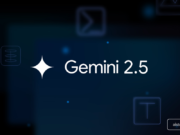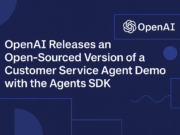Synthetic Intelligence (AI) instruments have revolutionized how we work together with expertise, making duties sooner and extra environment friendly. However because the comfort of those instruments grows, so does a urgent query: are they impacting our skill to suppose critically?
A brand new examine titled AI Instruments in Society: Impacts on Cognitive Offloading and the Way forward for Important Considering delves into this, analyzing how AI instruments affect vital pondering via a phenomenon known as cognitive offloading.
What Is Cognitive Offloading?
Cognitive offloading is after we depend on exterior instruments (like AI assistants, engines like google, or apps) to deal with cognitive duties that we’d in any other case carry out ourselves. This might imply utilizing AI to generate solutions, keep in mind particulars, or analyze info.
Whereas this will save time and psychological effort, it could additionally result in a decreased engagement within the deeper thought processes that underpin vital pondering.
If we spend much less time truly going via the knowledge and knowledge itself, it may possibly additionally end in us not understanding what it actually means, and forming psychological connections to different info, which is how new inventive concepts are fashioned.
Research reveals AI use may end up in decreased Important Considering
The examine concerned 666 individuals throughout numerous age teams and academic backgrounds, combining surveys and interviews to know how AI instrument utilization impacts cognitive talents. What the researchers discovered was:
- Elevated AI use leads to decreased Important Considering: Frequent use of AI instruments was strongly related to decreased vital pondering scores. Contributors who closely relied on AI instruments had been much less more likely to have interaction in unbiased evaluation and problem-solving.
- These outcomes had been additionally statistically very vital. There was a powerful destructive relationship between AI utilization and demanding pondering (r = -0.68)
- The position of Cognitive Offloading: Cognitive offloading to AI was the almost certainly purpose for this decline in vital pondering. Contributors who used AI for routine cognitive duties, like decision-making or reminiscence retrieval, reported decrease ranges of cognitive engagement and demanding pondering.
- Youthful, much less educated folks could be the most affected: Age and training performed a big position. Youthful individuals (17–25 years) had been extra more likely to depend on AI instruments and confirmed decrease vital pondering scores in comparison with older individuals. Conversely, people with greater training ranges demonstrated stronger vital pondering talents, even with AI use.
- Schooling can scale back the destructive influence of counting on AI: The examine discovered that superior training mitigates a few of AI’s destructive results. Educated individuals had been extra more likely to cross-check AI outputs and have interaction critically with the knowledge.
Along with the examine right here, I may spotlight that counting on AI instruments for inventive duties (comparable to picture technology, enhancing, writing or coding) may end up in the abilities folks construct up starting to say no, since their thoughts doesn’t should be as actively engaged within the process. This may occasionally end result within the outputs folks produce changing into much less inventive, modern or top quality than they might be. Or worse but, that individuals by no means put within the onerous work to develop these abilities within the first place.
Implications for Schooling and Society
The findings spotlight the necessity for academic methods to adapt. Whereas AI instruments have gotten indispensable, educators should make sure that college students proceed to develop vital pondering abilities. Listed here are some actionable steps:
- Encourage lively engagement with the underlying info: As an alternative of passively counting on AI-generated content material, college students must be inspired to investigate and query it. (Ed: I discover this myself when working with AI, when it typically nonetheless outputs info which isn’t fairly correct)
- Train AI Literacy: Understanding how AI methods work and their limitations can empower customers to critically consider AI-generated outputs.
- Steadiness AI Utilization: Promote a balanced strategy the place AI instruments complement reasonably than substitute human cognition. In any case, AI is a instrument. It isn’t a substitute in your personal concepts or insights.
AI instruments undoubtedly supply immense advantages, from effectivity to personalization. And in case you deal with it for what it’s, a instrument, then you should utilize these instruments to supply work which finest represents what you are able to do, simply extra effectively.
Nonetheless, as this examine reveals, over-reliance on these instruments can erode vital pondering (a talent very important for problem-solving, decision-making, and being an knowledgeable a part of society).
By fostering a tradition and mindset of vital engagement and considerate AI integration, we are able to harness the most effective of expertise with out compromising our cognitive talents.
Creativity & Innovation skilled: I assist people and corporations construct their creativity and innovation capabilities, so you possibly can develop the following breakthrough thought which prospects love. Chief Editor of Ideatovalue.com and Founder / CEO of Improvides Innovation Consulting. Coach / Speaker / Writer / TEDx Speaker / Voted as one of the vital influential innovation bloggers.




















![Diablo 4 Mod Apk Newest Model [Unlimited Excitement]](https://digibytetoday.com/wp-content/uploads/2025/06/1750344127_1-final-180x135.jpg)















